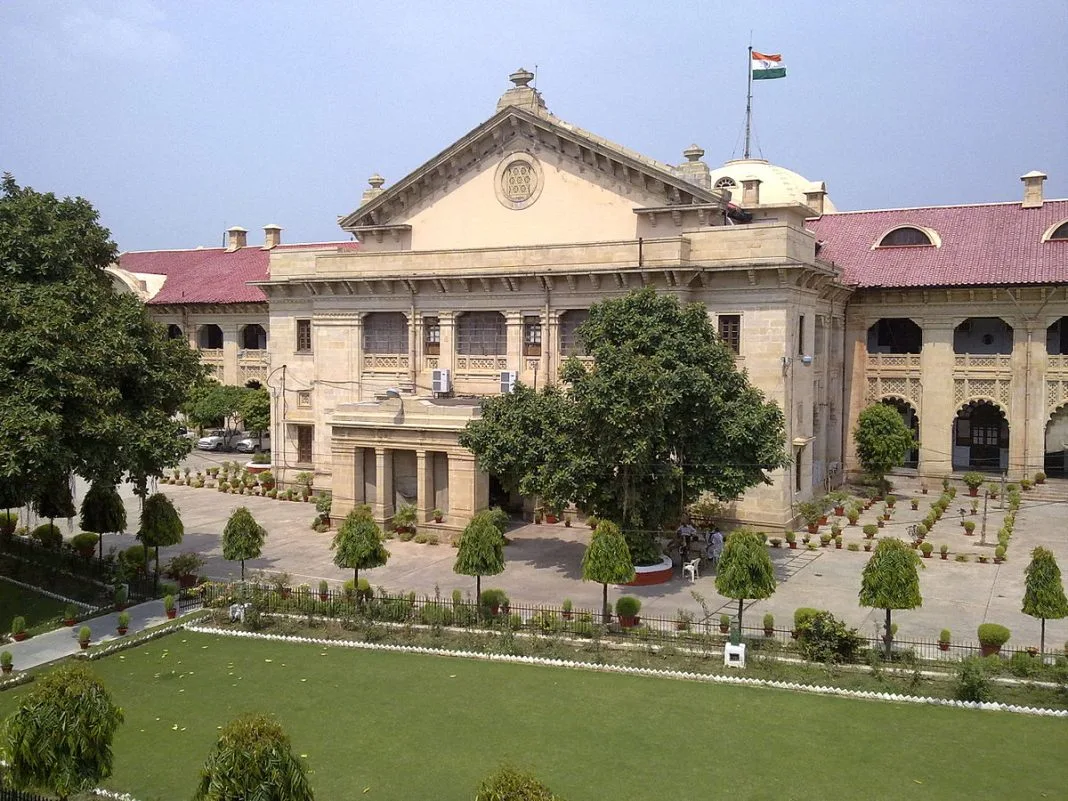The Allahabad High Court while dismissing an appeal stated that once cruelty is found committed, the cause of action to seek divorce does arise. How the parties may conduct themselves thereafter, may remain a relevant factor.
Yet, no rule of law may arise as may dictate to the Court to pass an order to restore the matrimonial relationship between the parties, without looking into the other attending circumstances.
The Allahabad High Court while dismissing an appeal stated that once cruelty is found committed, the cause of action to seek divorce does arise. How the parties may conduct themselves thereafter, may remain a relevant factor. Yet, no rule of law may arise as may dictate to the Court to pass an order to restore the matrimonial relationship between the parties, without looking into the other attending circumstances.
The Division Bench of Justice Saumitra Dayal Singh and Justice Shiv Shanker Prasad passed this order while hearing an appeal filed by Hemsingh @ Tinchu.
The appeal has been filed under Section 19 of the Family Courts Act, 1984, against the order dated 13.09.2023 passed by the Principal Judge, Family Court, Etawah in H.M.A Case titled as Smt Bhawna Vs Hemsingh @ Tinchu.
By that order, the court below has dissolved the marriage between the parties at the instance of the respondent.
The Court observed that,
Having heard counsel for the appellant and having perused the record, we find no merit in the appeal. Divorce had been sought on the ground of cruelty. In that regard, against specific pleadings made, the respondent proved before the learned court below that he insisted for dowry. More than that it was proven by her that the appellant used to assault her and pressurise her to leave her government job as a police constable and to give money to the appellant. The appellant also levelled serious allegations of adultery against the respondent. At the same time, his brother, father and sister-in-law stated during their cross examinations that the father of the appellant was unhappy with the conduct and character of the appellant.
Consequently the father of the appellant, Natthu Lal @ Maharam excluded the appellant from his Will. The appellant’s brother, Sukhveer testified that the appellant was dissatisfied with the action taken by his brother. The sister-in-law of the appellant, Ms Teena further stated that her father-in-law was unhappy with the character of the appellant.
The Court found that the respondent had been able to prove his case of cruelty committed upon the occurrence of repeated physical assault to force the respondent to either leave her government job and / or to give money to the appellant. While no more proof was required to establish the cruelty caused, the defence witnesses who are close family members of the appellant clearly corroborated the allegation of bad character of the appellant by stating, owing to such bad character and conduct of the appellant, his father excluded him from his Will. That being the statement of the defence witnesses, we find no error on part of the court below in finding that allegation of cruelty thus made, was proved.
The Court said that as to the counter allegation levelled by the appellant i.e adultery attributed to the respondent, that fact was not proved. It may itself amount to cruelty. Similarly, once the act of cruelty committed was found established, the court below has not erred in refusing to act on the plea of the appellant that the matrimonial relationship between the parties be restored subject to the appellant not raising demand of dowry etc.
“As noted above, here the act of cruelty committed was not only proven by the respondent but the defence evidence itself corroborated the same.
The acts of cruelty were not sporadic or singular as may have warranted any further consideration”, the Court further observed while dismissing the appeal.


